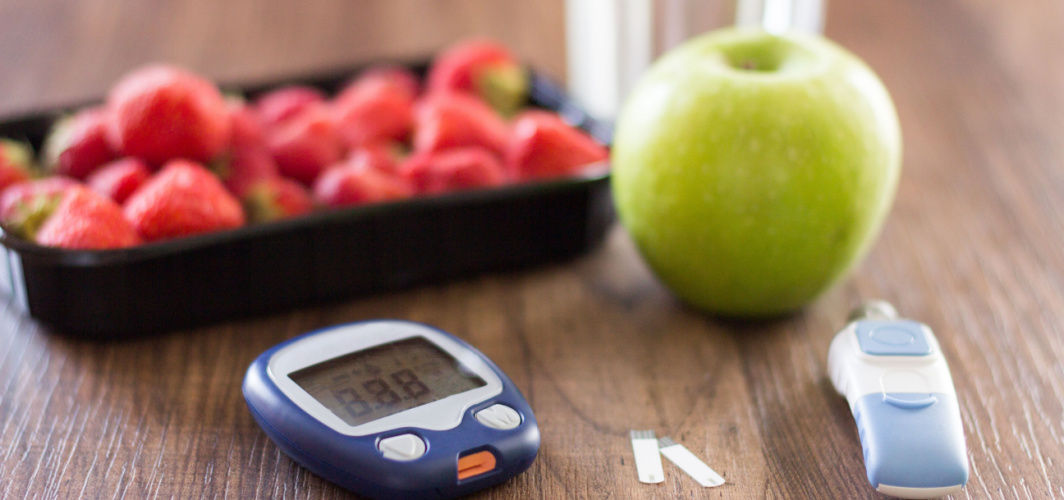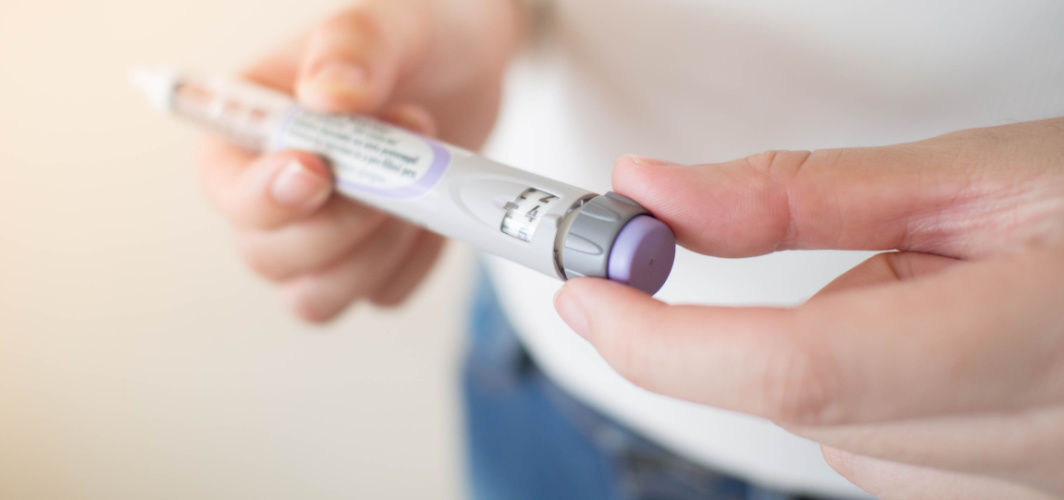Diabetes Management
Can People with Diabetes Consume Low Calorie Sweeteners?
5 min read
By Apollo 24/7, Published on - 20 July 2021, Updated on - 29 August 2023
Share this article
1
26 likes

Diabetics must keep their sugar consumption to a minimum to ensure that their blood sugar levels are within the healthy range. Maintaining blood glucose is crucial to prevent severe complications of diabetes, including nerve damage and cardiovascular diseases. People with diabetes should also take measures to prevent hypoglycemia (dangerously low levels of blood sugar) which can result in fatigue, anxiety, loss of consciousness, and irregular heartbeat. The use of low-calorie sweeteners instead of regular sugar can help people affected by diabetes maintain their blood sugar levels without affecting their body weight.
You can undergo a blood sugar/glucose level test at our hospital by clicking here. This test helps you understand your bodily glucose levels and how to control it.
What are low-calorie sweeteners?
Depending on the nutritive value of the sweeteners, they are divided into two groups: nutritive and non-nutritive sweeteners.
- Nutritive sweeteners: Nutritive sweeteners, also known as caloric sweeteners or sugar, contain carbohydrates and provide energy to the body. They can be found in natural foods such as fructose found in fresh fruits.
- Non-nutritive sweeteners or low-calorie sweeteners: These do not provide any nutrition as they are not made up of carbohydrates or fats and have zero calories. They are sometimes also known as artificial sweeteners and sugar substitutes. Low-calorie sweeteners do not raise blood sugar levels and therefore, can be consumed by diabetics.
Are low-calorie sweeteners safe for diabetics?
Studies have shown that low-calorie sweeteners (LCS) do not affect the blood glucose levels of the body, and can hence be consumed by diabetics. However, the effectiveness of LCS in maintaining the blood sugar levels of diabetics have been inconclusive.
- A study published in the journal Expert Opinion on Investigational Drugs found that the use of LCS can help in managing hyperglycemia (high blood sugar levels) in people who have not been diagnosed with type 2 diabetes. By replacing normal sugar with LCS, these people can prevent excessive insulin secretion and insulin resistance.
- Another research published in the journal European Endocrinology found that the use of LCS can help in reducing the carbohydrate intake in type 2 diabetics. By replacing added sugars with LCS, people suffering from diabetes and prediabetes can manage their blood glucose levels and maintain healthy body weight.
You can consult our best diabetologists in India and know whether you can consume low-calorie sweeteners or not.
What are the common low-calorie sweeteners?
The US Food and Drug Administration (FDA) has approved the use of some low-calorie sweeteners, which are sweeter than table sugar (sucrose) but contain few or no calories. These sweeteners include:
- Aspartame: Aspartame is commonly found in a variety of foods and beverages including breakfast cereals, yoghurt, gelatin desserts, candies, diet sodas, and sugar-free gums. It is believed to be 200 times sweeter than table sugar. However, people suffering from phenylketonuria (PKU), a genetic disorder, must avoid the use of aspartame.
- Acesulfame potassium: It is 200 times sweeter than table sugar. Acesulfame potassium is commonly found in sugar-free sodas.
- Saccharin: Saccharin was discovered in the late 1800s and is commonly used in jams, chewing gum and canned fruits. Saccharin is 200-700 times sweeter than table sugar but has a strong metallic after-taste.
- Sucralose: Sucralose is commonly found in baked food, desserts, canned fruits, dairy products and syrups. Sucralose is 600 times sweeter than regular sugar.
- Stevia: Stevia is a natural form of low-calorie sweetener, which is extracted from the leaves of the stevia plant. Stevia is 200-300 times sweeter than sugar. It is commonly found in teas and juices but can be used as a tabletop sweetener.
- Advantame: Advantame is an ultrahigh-intensity non-caloric sweetener, which is procured from aspartame. It is 20,000 times sweeter than sugar and is used as a sweetener and flavour enhancer.
- Neotame: Neotame is about 7,000 to 13,000 times sweeter than sugar. It is less commonly used as compared to other artificial sweeteners.
Talk with our dieticians and plan your diabetic chart. This diet chart can help you in controlling your blood sugar levels.
Are there any side effects of artificial sweeteners?
Though artificial sweeteners are considered safe for human use, long term or excessive use of these sweeteners can be detrimental. Some of the side effects of artificial sweeteners include:
- Long term use of artificial sweeteners can alter the taste buds. Since non-nutritive sweeteners are far sweeter than table sugar, even a minuscule amount can cause overstimulation of the sugar receptors. These hyper-intense sweeteners can reduce the tolerance for unsweet foods, such as vegetables and unprocessed whole grains.
- Research shows that excessive intake of artificial sweeteners can make people crave for sweets. As a result, people tend to choose sweet food over nutritious food.
- In the 7-year long San Antonio Heart Study conducted in Mexico, it was found that people who consume more than 21 diet drinks per week were twice more likely to become overweight or obese as compared to the people who did not consume diet soda.
- Another study published in the journal Diabetes Care found that people who consumed artificially sweetened drinks were at 36% and 67% higher risk of developing metabolic syndrome and type 2 diabetes, respectively.
Conclusion
Numerous studies confirm that artificial sweeteners are generally safe if consumed in moderation. Doctors also state that low-calorie sweeteners would not be beneficial until an overall healthy diet is consumed. Food marketed as sugar-free isn't always calorie-free, thus people must check the labels and ingredients on food packaging before consuming them to make informed choices. Diabetics can consult their doctors or an endocrinologist before using artificial sweeteners. Further research is needed to determine the effects of low-calorie sweeteners on weight management, cardiovascular health, and other chronic diseases.
Explore a range of low-calorie sweeteners.
You can also manage your diabetes like a pro with Apollo 24|7's 12-week empower programme.
Diabetes Management
Consult Top Dieticians
View AllLeave Comment
Recommended for you

Diabetes Management
Should Diabetics Fast in Navratri?
Fasting during Navratri can be a personal choice for individuals with diabetes, but it requires careful planning and consideration. Consulting with a healthcare provider is essential for creating a fasting plan tailored to your needs. Choosing low-carbohydrate, low-GI foods, staying hydrated, monitoring blood sugar levels, and being prepared for potential hypoglycemia are crucial aspects of successful fasting. If blood sugar levels become unmanageable or drop too low, breaking the fast is recommended. Listening to your body and prioritising health and safety are the keys to religious practices.

Diabetes Management
Diabetes And Stroke: Are They Related?
Diabetes and stroke are closely related. Poorly controlled diabetes can lead to inflammation, high blood pressure and increased cholesterol that can damage blood vessels, increasing the risk of stroke. Persistent damage can cause plaque buildup in artery walls, narrowing the blood vessels and impeding blood and oxygen flow to the brain.

Diabetes Management
What Is Insulin? Answering The Top 5 Frequently Asked Questions
The different types of insulin available for diabetes management are rapid-acting insulin which works quickly and short-acting insulin which is taken before meals to control blood sugar levels. Intermediate-acting insulin has a prolonged effect and is taken twice a day for basal insulin coverage during fasting periods while long-acting insulin provides a steady release of basal insulin for 24 hours to maintain stable blood sugar levels, and pre-mixed insulin that combines short-acting and intermediate-acting insulin.
Subscribe
Sign up for our free Health Library Daily Newsletter
Get doctor-approved health tips, news, and more.
Visual Stories

8 Fruits That are Incredibly Healthy for Diabetes
Tap to continue exploring
Recommended for you

Diabetes Management
Should Diabetics Fast in Navratri?
Fasting during Navratri can be a personal choice for individuals with diabetes, but it requires careful planning and consideration. Consulting with a healthcare provider is essential for creating a fasting plan tailored to your needs. Choosing low-carbohydrate, low-GI foods, staying hydrated, monitoring blood sugar levels, and being prepared for potential hypoglycemia are crucial aspects of successful fasting. If blood sugar levels become unmanageable or drop too low, breaking the fast is recommended. Listening to your body and prioritising health and safety are the keys to religious practices.

Diabetes Management
Diabetes And Stroke: Are They Related?
Diabetes and stroke are closely related. Poorly controlled diabetes can lead to inflammation, high blood pressure and increased cholesterol that can damage blood vessels, increasing the risk of stroke. Persistent damage can cause plaque buildup in artery walls, narrowing the blood vessels and impeding blood and oxygen flow to the brain.

Diabetes Management
What Is Insulin? Answering The Top 5 Frequently Asked Questions
The different types of insulin available for diabetes management are rapid-acting insulin which works quickly and short-acting insulin which is taken before meals to control blood sugar levels. Intermediate-acting insulin has a prolonged effect and is taken twice a day for basal insulin coverage during fasting periods while long-acting insulin provides a steady release of basal insulin for 24 hours to maintain stable blood sugar levels, and pre-mixed insulin that combines short-acting and intermediate-acting insulin.

